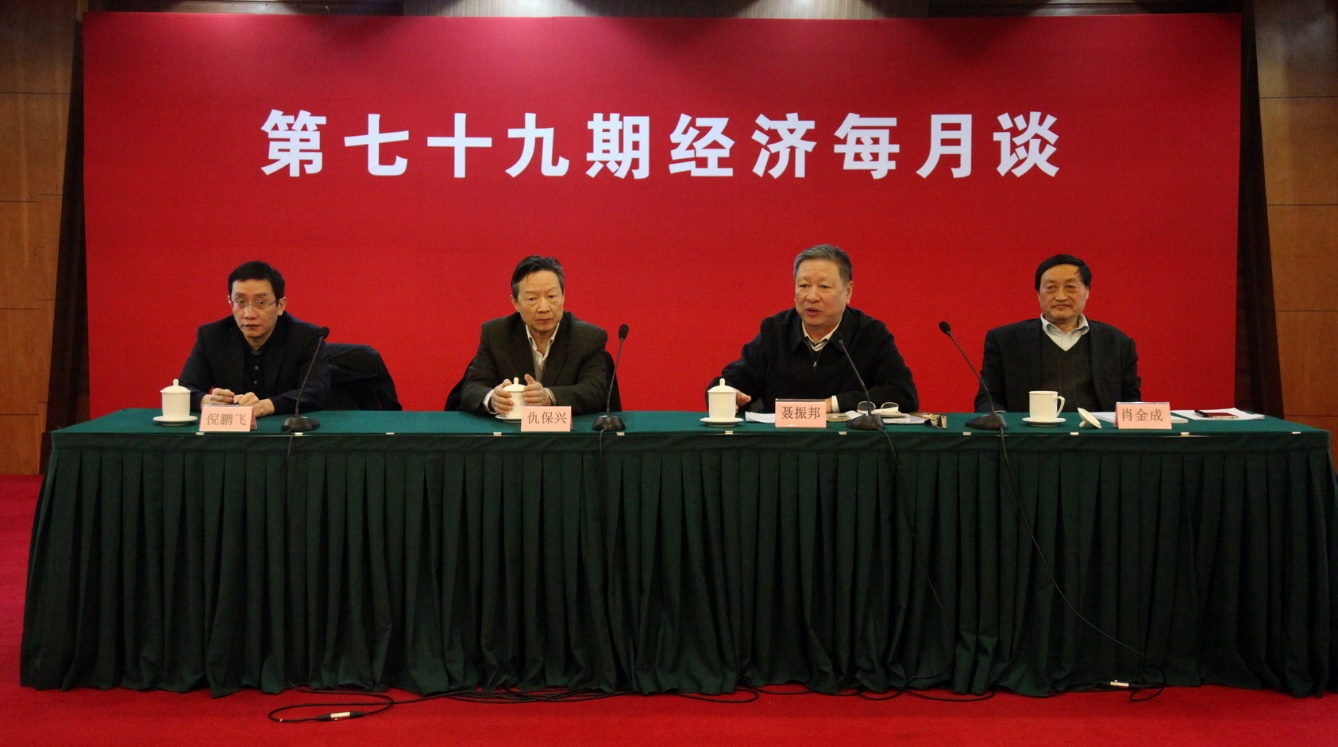CCIEE Holds 79th Monthly Economic Talk
- Time:2016-01-23
- source:CCIEE
On 22nd January 2016, CCIEE held the 79th Monthly Economic Talk on the theme of “Building Smart Cities”. Mr. Nie Zhenbang, Vice Chairman of CCIEE, presided over the talk. Mr. Qiu Baoxing, President of the Chinese Society for Urban Studies and former Vice Minister of Housing and Urban-Rural Development, Mr. Xiao Jincheng, Vice President of the China Association of Regional Economy and former Director of the Institute of National Land Development and Regional Economic Research of NDRC, and Mr. Ni Pengfei, Director of the Research Center of City and Competitiveness of CASS, respectively gave a speech.

Mr. Qiu Baoxing systematically introduced the background, concept and pathways of building “smart cities”, noting that smart cities is an important means to solve urban problems, strengthen urban management and enhance efficiency in urban governance. He also spelt out how smart cities could tackle urban problems with energy consumption, traffic, water supply and drainage, flood control and waterlogging prevention. He expressed the view that to cure these “city illness”, we need to not only control air and noise pollution and traffic jams, but, more importantly, use “Internet plus” and big data to enhance the administrative efficiency of city management, improve service quality, increase businesses’ competitiveness and profitability, provide more conveniences to people’s life, and exercise more effective supervision of the government. At the same time, we need to promote water-and-energy-saving recycling, green building and green communities, and build an urban management network to make city management more sophisticated.
Mr. Xiao Jincheng discussed the problems that have occurred during the process of urbanization in China, such as household registration, housing and social insurance for rural migrant workers. He then analyzed the process of separating industrial and urban functions of big cities and why most cities look alike and are loosely organized in the planning. Lastly, he proposed that urban planning should be forward-looking and take into account the overall development of cities, and place a premium on fostering and carrying forward urban cultures and integrating industrial and urban functions of cities.
Mr. Ni Pengfei expounded on the subject of “reshaping the spatial structure of China’s economy” from both theoretical and practical perspectives. He reflected on the current spatial structure of China’s economy and described the new patterns of China’s economic space and urban system. He pointed out that the spatial structure of China’s economy will take a new pattern of “integrated development in Eastern and Central China and subsidized development in peripheral regions”, and an “open and interconnected” new urban system featuring “one network and five belts” will take shape. He believed that with the further growth of China’s economy, the integration of urban industries and factor markets will be inevitable. To adapt to these changes, the government need to take policy measures that could guide such transformation to make China’s land space and urban system more optimized.
Some CCIEE researchers and representatives of its member organizations, relevant businesses and research institutions and the media attended the event.
